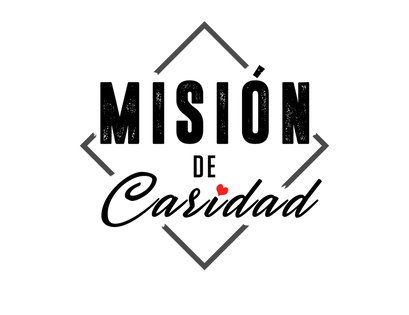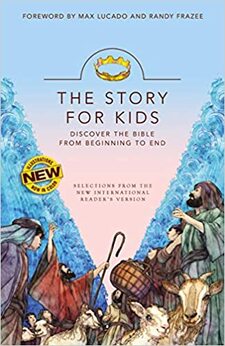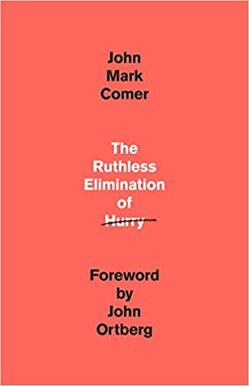|
One Sunday a couple of months ago, I went for a walk in the neighborhood and ran into two moms equally hungry for adult conversation. One shared her disappointment over a cancelled playdate due to the other party learning they may have been exposed to COVID, and we all commiserated about lost opportunities and outlets. I went home no less weary but emotionally buoyed by this shared experience of weathering the pandemic.
And then I saw the newspaper headlines about hopeful immigrants on the Mexican American border, people who had traveled far in order to seek a better life, only to be disappointed at the gate. It really put things in perspective -- how there’s disappointment, and then there’s disappointment. My biggest disappointment from the year at that point had been a failure to plug myself into a project or organization. I thought I would be revising a book in a competitive writing program, or employed in some capacity in the field of writing or editing. A couple of years ago, as I anticipated placing all of my kids in school and for the first time actually having time on my hands to pursue these goals, my stress level went off the charts. It surprised me, actually. I thought this was supposed to be an exciting time, a chance to knock on some doors and see which ones opened. And yet, I was terrified that none of them would. Likewise, this past spring friends and teachers were asking me and other neighborhood parents if we were excited about getting to send our children to school full time again, a little over a year since the pandemic sent them home. Every mother I spoke with then had mixed feelings about this. Some parts of us would miss little moments with our kids, or little moments our kids had with their siblings. Some of us would miss the lack of pressure to fill our social calendars and sign our kids up for every sport and club of their whims. And some of us, like me, would dread the implication that having all of the kids out of the house again would mean that we had to stop skirting the issue of what we were going to do with ourselves once the kids were gone. We realized that our kids are never truly gone. We realized that we needed to stay flexible, that the kids could be asked to quarantine just as quickly all over again. We realized that even if everything went smoothly, the kids would still be home all afternoon every day, and we would still be wondering when to fit in the cooking, cleaning and shopping, let alone all of the planning. And yet, something calls inside my stay-at-home mom friends, just as something calls inside me. We were born with curiosity, with talents, with potential. We have an interest in being useful, to our families, yes, but also to our communities and to society, and we want to do so in a way that uses our gifts or cultivates new skills. I haven’t spent significant time in the workplace. My two-plus years as a resident doctor never prepared me for a job search. I had always just followed the next step. It was daunting to revise my resume and attempt to navigate job sites, so I decided to start by talking to the people I already knew. I posted my dilemma to my church’s community board: a desire to write or edit for a company or organization along the lines of topics which I write about on my blog. Within a few days I heard back from the founder of Misión de Caridad, an organization I announced on this blog back in 2019. “It’s not paid work, but would you like to write for our blog?” On the heels of my conversation with my friends about disappointment and seeing the recent headlines about disappointed potential immigrants, this seemed to draw together several threads in an unexpected and enticing way. I double checked that I didn’t need to be able to speak Spanish in order to participate, and, with no other reservations, sent back a resounding yes. Here was a chance to be involved with the work already in process to help those at the border, perhaps not the families from the headlines I saw the other day, but ones in a similar position. I haven’t yet written for the blog, but I did sign up to be a monthly donor to this organization, and perhaps when I do get a chance to write this can be one concrete example of how helping others is also a step to helping ourselves. We are all connected. Perhaps there are roles for each of us to play.
0 Comments
My family hasn’t stepped foot inside our church building since February, 2020. Back then we had a lingering cold that we didn’t want to pass off to anyone. Maybe we had COVID. Maybe not. Testing wasn’t available at that time. A little over a month later, our church, like many others, went completely virtual. This didn’t only mean the main worship services though. During those first few panicky weeks, our youth ministry team offered Zoom gatherings for kids several afternoons a week, with games, stories, and singing. And shortly after that, they ramped up to offering weekly kids church programming on Zoom prior to the start of the adult services on YouTube. It was an incredible operation. Their message: we don’t stop church for a pandemic. Many people found our online church community during the past year. It was an appropriate time to seek faith and ask big questions! But in our house, we grew tired of the online format. It was harder and harder to connect, harder and harder to keep up our stamina for electronic engagement, especially after the toll of remote schooling. Given all of this, I had mixed feelings when our family ministry pastor emailed in May of this year about the upcoming second grade Bible Milestone. Every year in our church, second graders (and any third graders who missed it) are invited to participate in a Bible Challenge: memorize Bible verses and/or the order of the books of the Bible and/or read The Story for Kids. In return for their efforts, the kids can earn “stones” to “purchase” candy and trinkets at a makeshift store. The month-long activity culminates in a Bible ceremony during which each child is honored and presented with their very own Bible. Second graders are targeted for this milestone because it’s a way to acknowledge their (likely) newfound ability to read and to show them how they can use this skill to access the greatest (selling) book of all time: the Bible. I remembered going through this process with my daughter two years earlier. I remembered what a challenge it was to get her to memorize verses or learn books of the Bible, and I remembered how we didn’t even get to participate in the ceremony because it occurred on the weekend we were away at Camp Berea for our first mother-daughter retreat. Still, the retreat was it’s own gift, and I did get to give her the Bible myself with a prompted blessing provided by our pastor. We marked it in our own way, I decided.
Some they (and you) like more than others, but what’s most fun, I’ve found, is the discussions of why we have these preferences. As for The Story for Kids, they each read it eagerly. Building off of that enthusiasm this time around, I copied several Bible verses onto cardstock with a black Sharpie and posted them on bathroom mirrors and at the head of my second grade son’s bunk bed and in the hallway. Then I smiled when I heard him read the words out loud as he washed his hands or passed through on his way to another room. I told him: Just keep saying them over and over and you’ll memorize them. And he did! Three of them anyway. Then it came time to RSVP for the ceremony, to be held at another second grader’s home, and I balked. I was still feeling jumpy about attending social events. Things were really starting to open up around us. Yet, we were encouraged to only bring part of the family. Who would stay with the rest of our kids? Who should attend?
“You may think you’re supposed to start with Genesis, but start with Mark. It will give you a great overview of Jesus’s life,” he advised. “We’ve included more ideas on how to read the Bible in a reading guide tucked into the pages as well.”
We smiled and thanked him, and that evening at bedtime my second grader was curled up in his bunk bed with his new Bible, aware of his new gift, that this book was truly given for him. I ran out of stamina during this pandemic for many things that are normally routine, like attending weekly worship services at church, but that night I was incredibly thankful for the faithfulness of our family pastor and the rest of the staff. I had groaned when they had asked me to do “one more thing” during such a hard season, and yet, they provided that gentle reminder that it’s worth it. This spring, time seemed to move on in such a haze, but this was a reminder that we can still mark these days. We can remember this moment. Those Bible verses are still on the bathroom mirrors, reminding us that we aren’t forgotten either. We are still here, pressing on through the fog and searching for what matters most. Say you’re driving with your husband on some winding road. Maybe in France. Maybe in Scotland. Maybe in Norway. Doesn’t matter really other than these are places you have traveled together. It’s just the two of you, and you’re probably on vacation, on your way to see something nice. So you turn to him from the passenger seat and comment on that, how this is nice, and he looks at you to acknowledge what you’re saying, to offer a slow agreeable smile. Only, as you break your gaze, returning your attention to the road ahead, you notice that your husband has missed the sharp bend. The cars that were ahead of you are now off to the left. You stay calm and say to your husband, “You’re about to drive off a cliff.” Your husband looks ahead as the car launches over the edge, and you think to yourself, so this is what this feels like. The free fall is short-lived because you suddenly land and continue as if propelled down a steep grassy embankment. The front wheels make contact, and you feel the speed in your stomach, gravity zipping your little rental car toward an unknown end. The sensation of uncontrollable acceleration is real. This is what wakes you up at 4:30 in the morning on the day of your family’s camping trip. You realize with trepidation that you do not know how the dream ends. Maybe you have this kind of dream all the time, but this was new for me. After a year of stagnant sameness due to the pandemic, we were on the cusp of finishing our family’s biggest spring season we had ever known. I had approached the season nervously as my kids asked to sign up for baseball and soccer and Cub Scouts and art class and swim clinic and piano lessons. (Okay, they didn’t ask for piano lessons; I insisted on that one.) The scheduling was overwhelming enough, but what about the risk of COVID? The risk of quarantine? The risk of getting any kind of cold whatsoever and needing to miss school? But we needed to get out of the house, myself included as I took a part time job as a lunch and recess monitor at an elementary school. My kids needed other kids. My kids needed to play. And it turns out, I needed to watch them. Once we finally figured out we should bring camping chairs to Little League games, suddenly that was the only place I wanted to be. Give me a warm summer night with cheering and shouts of encouragement and cool water to drink and other parents to socialize with, and I was content. Many of the other activities embodied this too. And yet, now the season was coming to an end...but not without a bang: My son got three hits in the baseball game he played on his birthday. My daughter’s soccer team won their championship after three matches, a shut out each time. My twins each graduated from kindergarten, and we said goodbye to our 50-year-old elementary school that is slated to be rebuilt, with demolition beginning this fall. We welcomed my parents to town for the first time in two years and gathered with extended family for a BBQ for the first time since the pandemic. All of this happened in the span of a week actually, at the end of which my daughter went to an outdoor birthday party and I got a text from the birthday girl’s father saying Finally, normalcy! And at that point, I burst into tears. So much goodness after such a famine. So much normalcy after hanging onto hope. So many endings after waiting to start and waiting to start. Then, it was over. The games had been won, and we were about to launch ourselves into a summer and fall of more unknowns with a road trip west that also included my expectations for rest and time to write, and then a return to Cambridge where our kids will enter an interim school building with an unknown subset of the community who isn’t moving away. But first, a weekend at Boy Scout Camp. Tent? Check. Bug spray? Check. Swimsuits? Check. Sleeping Bags Pillows Snacks Flashlights Camping Chairs Toiletries Change Of Clothes S’mores To Share Sunscreen Soccer Ball Drying Rack Towels Extra Masks Water Bottles BYO Caffeine AND My Writing Material.
I had been rejected by five competitive writing programs in the last year and didn’t expect to get into this one when I applied back in March. Shortly after I submitted my application, in fact, I pursued that part time job as a lunch and recess monitor in order to have something (out of the house) to do with my time.
Then, mid morning on Mother’s Day, while my kids were out of the house playing at a park with my husband, I checked my email on my phone and saw this subject line: Memoir Incubator: CONGRATULATIONS! Yet, I read the “congratulations” part first and assumed it was spam. I never win anything. (You don’t either, right? It’s not just me?) It took a few seconds to reread and then let it sink in that I wasn’t dreaming this time. Oh, this is an email I should open…. I was thrilled and scared. A friend of mine had just finished this program and admitted it really put her through the wringer. She described it as a job you’d want on your resume but didn’t feel too good going through it. That made me nervous. But then I learned that another woman in my writing group was also accepted into the course, and I saw another writer I remembered from a course I took last spring, one that started in person and finished over Zoom. My excitement and nervousness grew as I learned more about the course load. In addition to weekly readings, we were required to submit new weekly writing to the instructor and read a classmate’s entire memoir manuscript and give an editorial letter of feedback. Hours of work that required focus and inspiration and sitting in the seat and putting the pen to paper no matter the mood. The goal of the year-long program is to complete and rework a memoir manuscript and take it to the next level en route to publication. This is one of the reasons this blog newsletter is late this month. The class (and my classmates) have been wonderful so far, but with my material up for workshop in July, I’m a bit nervous. In the meantime though, I’ve been digging in. Even at Boy Scout Family Camp where I reread printed pages in a camp chair as I flicked away the ants crawling up my legs. There’s a lot of work to do going forward, and each day is full of possibilities. I don’t know what it means to have a dream where you drive off a cliff. I’m guessing it’s not all bad actually. The spring was the overcommitted kind of fun our family really needed, and I’m embarking not only on another chance to spend the summer in my happy place but also a chance to spend it doing my favorite thing: writing in community. So I say let’s drive. I’m strapped in. Seat belt? Check. This is what this feels like. And I’m so ready for the ride. I have read dozens of books that analyze what Jesus did during his life on earth and how it applies to us. This is the first book I have ever read that considered HOW he lived. Here’s the concise version: He was never in a hurry. More straightforward: He moved slowly. Talk about countercultural! Can you imagine telling that to a friend when s/he comes to you for advice, asking how do I solve this problem? How do I fit this in my schedule? How do I fix this broken relationship? What would that friend say if you said to slow down? Should we tell these hungry people to go find some food before the markets close? Oh no, just give them something to eat from what you have. Should you really stop to help the bleeding woman when a girl has died across town in her house? Stop and heal the woman. The girl will still be there. But you will come right away when Lazarus is dying, your good friend? No, you rest for three days. Then go and raise him from the dead. Or say you’ve been baptized and heard God say “This is my son, with whom I am well pleased.” Wouldn’t you race out to do the ministry the world has been waiting for as soon as possible and at breakneck speed? No. Better to go battle the devil in the wilderness for forty days. Forty days. There’s some famous quote about some famous historical pious person who would pray for three hours every morning. Three hours. Someone asked him how he had time to pray. The response was “I’m too busy not to pray.” I was told this in order to learn the lesson to put God first, to let him direct the days, to remember that without him the days are disordered.
“What do I need to do to become the me I want to be?” (To John Ortberg this meant, what do I need to do to be the follower of Jesus I want to be?)
Willard’s answer: “You must ruthlessly eliminate hurry from your life...There is nothing else. Hurry is the great enemy of spiritual life in our day. You must ruthlessly eliminate hurry from your life.” (18-19) I read this and remembered my time as a new mother, when I had just quit my job and scooped my six-month old daughter out of daycare and set both of us on a new schedule. That was a scary time. How would I order our days? How would I know I was the mom she needed me to be? And yet, as we proceeded through a combination of naps and playtime and singalongs and walks in the stroller, I remember commenting to someone that, “Everything works out as long as we’re not in a hurry.” I anticipated my daughter’s needs (she was the kind of baby who made her needs clearly known). I arrived early for events and appointments. I prioritized sleep above everything. Life was predictable and gentle and joyful, and really, I attributed it to our pace of living. All to say, I see Comer/Ortberg/Willard’s point. But now what? Now, how do I live like that while juggling the matrix of my four children’s needs? While juggling household duties? While juggling my own aspirations? How do I now fight the cultural pull to do as much as possible as quickly as possible at the highest level possible? And indeed, Comer points out that “to choose to live an unhurried life in our day is somewhat like taking a vow of poverty in earlier centuries; it is scary. It is an act of faith.” (xiv) How can we reconcile the world’s demands with the Bible’s teaching, “we urge you, brothers and sisters...to make it your ambition to lead a quiet life”? (1 Thessalonians 4:10-11, emphasis mine) Comer has some suggestions, some that sound insurmountable, but some that sound possible. I’m guessing we start with the possible and then work on it. Because he’s not the kind of pastor to let you off the hook if you’re in a busy season of life. He urges you to pursue this slowdown (though at a gentle pace!) no matter your season, which feels a bit jarring. His aim is this goal: “The good of being delivered from hurry is not simply pleasure but the ability to do calmly and effectively -- with strength and joy -- that which really matters.” (xiii) “If you want to experience the life “to the full” of Jesus, his nonstop, conscious enjoyment of God’s presence and world, all you have to do is adopt not only his theology and ethics but also his lifestyle. Just follow his way. / That’s it! / Just take his life as a template for your own. Take on his habits and practices. As an apprentice, copy your Rabbi’s every move. After all, that’s the whole point of apprenticeship.” (86) How do we live like him then? How do we slow down and prioritize our relationships with God and others? Comer returns to these spiritual practices: silence, solitude, Sabbath, simplicity and slowing (the last of which he acknowledges is not a traditionally recognized spiritual practice). Regarding the practices of silence and solitude, he reminds us that “the wilderness isn’t the place of weakness; it’s the place of strength.” (125) and “the busier and more in demand and famous Jesus became...the more he withdrew to his quiet place to pray.” (130) These practices “create an environment for attention and connection to God” (135) Regarding the Sabbath, I think Comer has a great take on what this day was supposed to be when God spoke it into being. However, he skims over centuries of misinterpretation that left generations of people, children especially, repeatedly annoyed at how the Sabbath limited their enjoyment of free time. I think there is still a lingering hangover from this Puritanical phase of the Christian journey, and it’s up to each of us to bring back and renew the narrative of the Sabbath. Sabbath, Comer writes, is meant to “mitigate against the chronic restlessness of our condition and culture and [tap] into Jesus’ rest for our souls” (148) God commands the Sabbath in the Old Testament, first in Exodus as rest and worship and later in Deuteronomy, as resistance to the “culture of more” from Egypt, which ties into the next practice of simplicity. I had heard/read a lot of Comer’s examples before -- about how our post WWII economy intentionally created a consumerist culture, and how once you’re in the middle class, more money doesn’t buy happiness. But I wondered, what does all of that have to do with hurry? Comer offers this connection: “One of the many reasons that happiness is dropping in the West even as the Dow is rising is because materialism has sped up our society to a frenetic, untenable pace. / As Alan Fadling insightfully said, / “The drive to possess is an engine for hurry.”” (190, Alan Fadling, An Unhurried Life: Following Jesus’ Rhythms of Work and Rest, Downers Grove, IL: InterVarsity Press, 2013, emphasis mine). I like this interpretation of what it means to have healthy eyes because it reminds us why simplicity is important, how it helps fix our eyes on what matters most: “In Jesus’ day, if people said you had a “healthy eye, [referring to Matthew 6:22-23], it had a double meaning. It meant that (1) you were focused and living with a high degree of intentionality in life, and (2) you were generous to the poor. When you looked at the world, you saw those in need and did your best to help out. An “unhealthy” eye (or as the King James Version has it, an “evil” eye) was the exact opposite. When you looked out on the world, you were distracted by all that glitters and lost your focus on what really matters. In turn, you closed your fist to the poor.” (196) Lastly, Comer shares some ideas on the practice of slowing, like driving the speed limit, arriving early for appointments, setting phone limits, and cooking his own food, all times he intentionally “cultivat[es] patience by deliberately choosing to place ourselves in positions where we simply have to wait.” (221, quoting John Ortberg, The Life You’ve Always Wanted: Spiritual Disciplines for Ordinary People, 83) In the end, he reiterates that the practices themselves are not the end goal. “The end isn’t silence and solitude; it’s to come back to God and our true selves. / It isn’t Sabbath; it’s a restful, grateful life of ease, appreciation, wonder, and worship. / It isn’t simplicity: it’s freedom and focus on what matters most. / It isn’t even slowing; it’s to be present, to God, to people, to the moment.” (247-8) How do we know we should practice these things? Because Jesus lived this way. Jesus spent time sleeping, praying, observing Sabbath, going off for (long) periods of solitude. If you think you might not have time to read this book, consider this: Comer writes with a near breathless pace -- in short 1-2 sentence paragraphs because he knows his readers don't have the attention span for more. It’s easy reading, but above all, I recommend this book for its refreshingly new view of Jesus: the Jesus who lingers, lounges and loves steadily. |
Author's Log
Here you will find a catalog of my writing and reflections. Archives
December 2022
|




